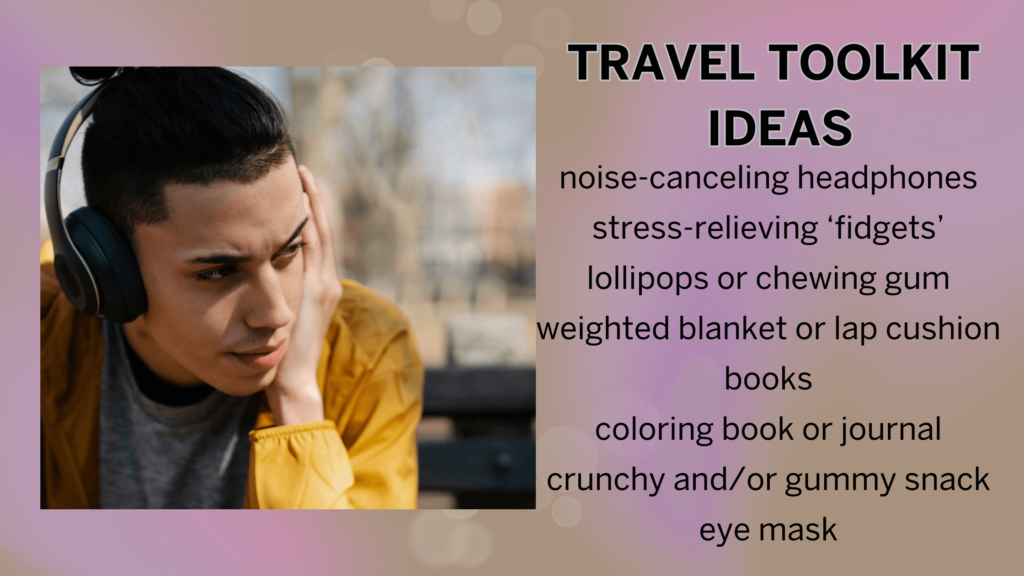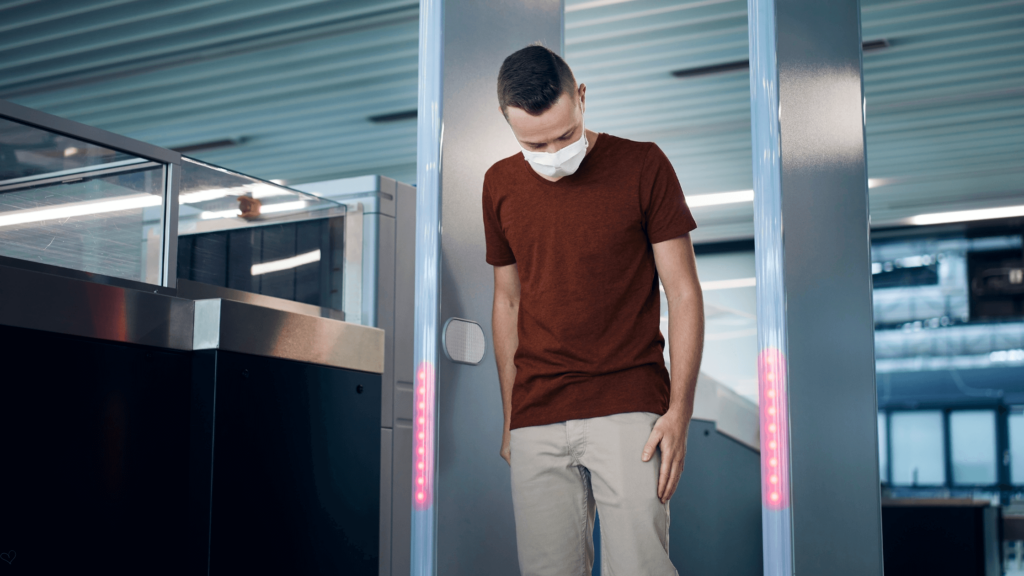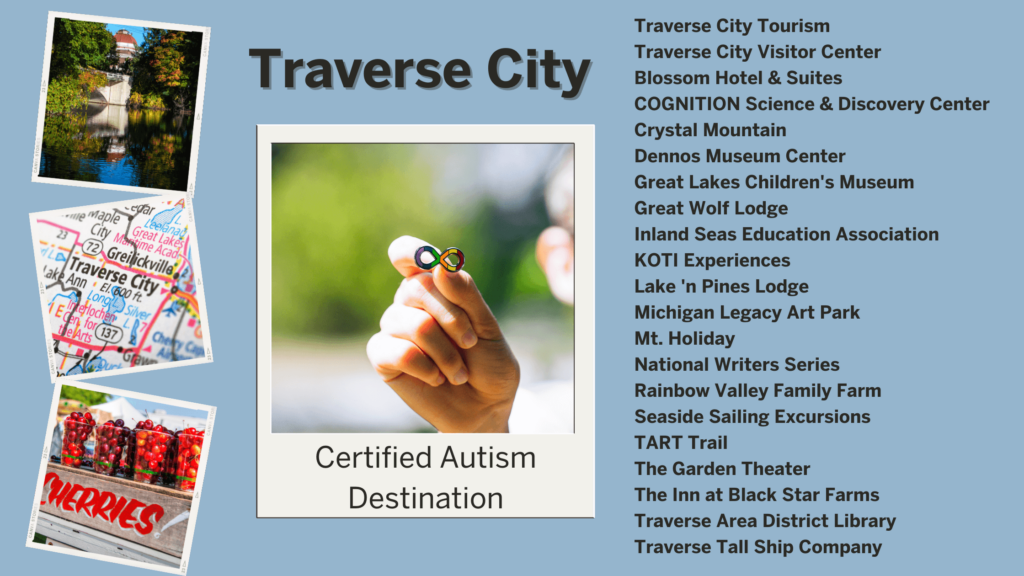How to Handle Different Travel Personalities in Your Group
April 3, 2025
Read MoreTraveling can be a great experience for people with autism spectrum disorders, but it can also be challenging. If we work to understand their needs and use the right strategies, we can make travel easier and more fun for everyone. This guide is packed with helpful tips and ideas for travelers with ASD.
Autism spectrum disorder is “a condition related to brain development that impacts how a person perceives and socializes with others, causing problems in social interaction and communication. The disorder also includes limited and repetitive patterns of behavior.”
The term “spectrum” refers to the wide range of symptoms and severity.

ASD can influence how a person communicates, interacts with others, behaves, and processes sensory information. Those with ASD have both special skills and unique challenges as they experience the world in their own ways.
Because travelers with ASD can fall anywhere on the spectrum, it’s difficult to pinpoint a specific list of possible travel challenges. However, there are a few general pieces of the group travel puzzle to consider:
These things can be challenging for the most seasoned traveler, but especially difficult for one with ASD.

It is very important to understand the different needs of travelers with ASD. Learning about each person’s sensory profile, how they like to communicate, and what might upset them can help group leaders build a welcoming and helpful space for everyone.
Training from trusted organizations like the International Board of Credentialing and Continuing Education Standards (IBCCES) can make group leaders more prepared. Getting a Certified Autism Center (CAC) designation shows a commitment to offering inclusive services and understanding what individuals with ASD need.
Effective communication and understanding are very important for anyone helping travelers with ASD. Group leaders can learn simple communication tips that fit different styles. This can include using visuals or short, clear language.
Social stories are a great way to communicate. They can help individuals with ASD understand new situations by breaking moments into easy steps. Doing this can really help manage their fears of the unknown.
Sticking to a schedule is important for everyone, but especially helpful for travelers with ASD. A schedule provides the structure for the day and deviating from the schedule can increase anxiety and stress.
However, anyone who has traveled with students knows that schedules are often fluid. Try providing travelers with ASD with a less specific itinerary and general timeframes.
For example:

Removing specific attractions, restaurants, or other activities alleviates the stress that may come with not staying on schedule.
Crowds, noise, and chaos are common when traveling – especially with groups! However, these factors can affect people with ASD on a different level, sometimes causing stress, anger, outbursts, or sensory-seeking behaviors.
Try to maintain an environment that’s as calm as possible. A few ideas to consider:
There are several sites that do an amazing job showing trip leaders how to create an ASD “travel toolkit.” These might include things like:

Flying with ASD may require a little extra prep. Gate check-in, long security lines, screening, and the flight itself can cause disruptions to the routine.
The TSA Cares program was designed to assist travelers with disabilities and medical conditions through the security process. Passengers can reach out 72 hours prior to flying for information about what to expect.
In addition, individuals with ASD can prepare by role-playing ahead of time. Practice removing shoes, knowing which items to take out of a carry-on and which stay in, and going through a body screen.
A little practice can go a long way in calming anxious flyers!

Finally, some airports offer a break from the chaos with sensory rooms. Autism-friendly airports include Pittsburgh International, Myrtle Beach, and Hartsfield-Jackson Atlanta International.
As you plan your adventures, do a little research into “autism certified” attractions. The International Board of Credentialing and Continuing Education Standards designates theme parks, water parks, resorts, and more as “autism certified.”
IBCCES certified means that attractions are:
This is a brief list of autism-certified attractions, but there are many autism-friendly destinations and attractions to consider when planning a trip.

So… where do the big parks fall in all of this?

Walt Disney World® in Orlando is not autism certified but IS ASD friendly.
There are break areas for a quiet moment, rider switch programs, Disability Access Services, companion restrooms, and more available throughout the parks.
CLICK HERE TO DOWNLOAD DISNEY’S GUIDE FOR GUESTS WITH ASD

In March of 2022, Universal Orlando Resort added its first quiet room, providing low-stimulation space as an alternative to the hustle and bustle of the parks.
The room has dim lighting, rubber floor tiles, an activity wall, and two tunnels to temporarily escape the crowds.
In addition to the quiet room, Universal has several other park locations to calm overstimulated senses.
CLICK HERE TO DOWNLOAD UNIVERSAL’S GUIDE FOR GUESTS WITH ASD
In August 2024, Traverse City became the first city in Michigan to qualify as a Certified Autism Destination. This means that businesses and organizations throughout the city trained staff to handle the unique needs of those with ASD.
The training focused on recognizing and understanding autism and other common sensory sensitivity concerns. The idea was to create a travel experience that’s welcoming and accessible to all.

Traveling with clients who have ASD can be a great experience if we plan carefully and sensitively. A little education, understanding, flexibility, and research can make a huge difference in the outcome of a trip.

April 3, 2025
Read MoreMarch 20, 2025
Read MoreMarch 6, 2025
Read MoreFebruary 20, 2025
Read MoreJanuary 9, 2025
Read More